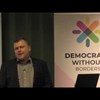inundation
Completed: Preferences for coordination - their function and evolutionary foundation
Using behavioral game theory, this project aims to provide a deeper understanding of how collective action decisions are made and why people make the choices they do.
Jonathan Boston: Assessing and Applying the Concept of Anticipatory Governance
Jonathan Boston, Professor of Public Policy, School of Government, Victoria University of Wellington.ABSTRACTFundamental to good governance is the active anticipation, assessment and management of risBased on this analysis, the paper applies the concept to the policy challenges posed by climate change adaptation, particularly sea-level rise. In this regard, humanity is confronted with a slow-motion disaster that will grow progressively in scope and scale, sometimes abruptly. Societies will face significant uncertainty, multiple and compounding risks, immense costs and difficult intertemporal and intragenerational trade-offs. More specifically, rising sea levels will have a major and increasing impact on the built environment in coastal regions. Globally, hundreds of millions of people could be forced this century to relocate from areas at risk from coastal erosion and inundation, higher water tables, and more frequent and intense rainfall events. Mitigating some of the risks and increasing societal resilience via anticipatory, pro-active, prudent and adaptive policy responses will be politically challenging, not least because of the large upfront costs, the likelihood of powerful blocking coalitions, and the complexities of inter-governmental and inter-agency coordination. This paper outlines how, in the interests of sound anticipatory governance, these challenges might be addressed through the creation of new governmental institutions, funding mechanisms and revised planning processes.
Kristina Redefelt
AccountantTel: +46 72-092 17 30E-mail: [email protected] I take care of the ongoing accounting of the foundation, as well as invoices, billing and financial statements.
Great expectations
In celebration of the 50th anniversary of Riksbankens Jubileumsfond (The Swedish Foundation for Humanities and Social Sciences), the foundation arranged the seminar "Great expectations", on the future

IPSP: Daniel Wikler on demographic changes and challenges
Short interview with Daniel Wikler, professor of ethics and population health, on the chapter "The contours of human life" in the IPSP-report. Daniel Wikler's visit to Stockholm was made possible t

The Institute for Futures Studies - What we do
The Institute for Futures Studies is an independent foundation that conducts research on important questions that shape our future society. Based on four themes, we investigate critical issues for the
Funding received for research projects about democracy and equality
Last week the institute was granted 8 million SEK by the Wallenberg Foundations for two research projects that will go on for four years. The boundary problem in democratic theory. Gustaf Arrhenius was g

Book launch with Andreas Bummel: A world parliament
"A world parliament: Governance and democracy for the 21st century" is here presented by one of the authors, Andreas Bummel at the Institute for Futures Studies in October 2018. Adrienne Sörbom and Ha

Janine Wedel
I am an anthropologist and university professor in the Schar School of Policy and Government at George Mason University, and a senior research fellow of the New America Foundation. My main research in

Solidarity in diverse societies - interview with Will Kymlicka
Will Kymlicka, researcher of political philosophy, came to visit the Institute for Futures Studies in Stockholm in April 2016, thanks to funding from The Swedish Foundation for Humanities and Social S








